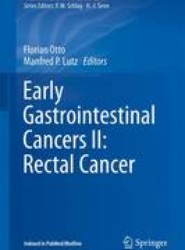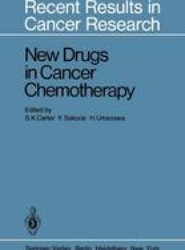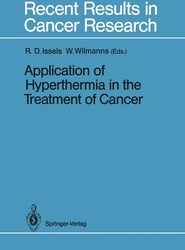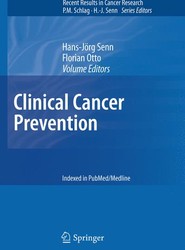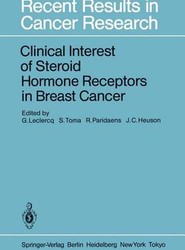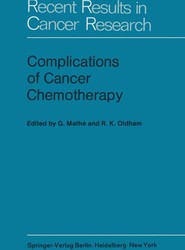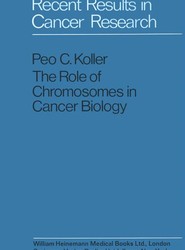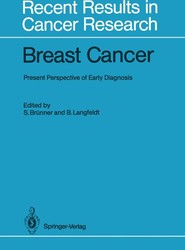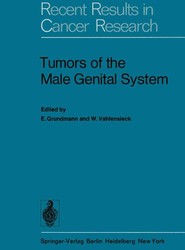(To see other currencies, click on price)
MORE ABOUT THIS BOOK
Main description:
E. GRUNDMANN The question as to whether cytostatic drugs might be carcinogenic has been presented and discussed in three experimental studies. The most extensive in- vestigations were by J. H. WEISBURGER and coll. (New York, Alabama, Bethesda). They started with an exact determination of rate and localization for spon- . taneous tumors in their animal strains. Thirteen cytostatic compounds current- ly in clinical use were then given in the maximally tolerated dose (MTD) to groups of 25 male and 25 female animals (rats and mice) three times weekly, in most assays over a period of 6 months. Other identical groups of animals received 0. 5 of the MTD. Each test involved 50 male and 50 female mice and the same number of rats. As positive controls, identical groups were given diethylnitrosamine, which induced tumors of liver, lungs and kidneys in the expected rates. The direct alkylating agents (Actinomycin 0, Melphalan, Mito- mycin 0, Uracil mustard, Dibromomannitol and Dibromodulcitol) induced cancer in the peritoneal cavity, the site of the injections. Rats appeared to be more susceptible than mice. Other drugs (e. g. the cyclohexamide salt of phos- phorodiamidic acid derivative, Natulan, DIC and streptozotocin) had a broad spectrum of carcinogenicity affecting a variety of organs.
Several agents led to tumors in the hematopoietic and lymphatic systems in mice or rats or both. The correlation to the general immunosuppressive action is not quite clear. 6-Mercaptopurine induces lymphosarcomas in mice.
Contents:
I. Tumor Induction by Cytostatics?.- The Carcinogenic Properties of Some of the Principal Drugs Used in Clinical Cancer Chemotherapy.- Experimental Investigations with Anti-Cancer Drugs for Carcinogenicity with Special Reference to Immunedepression.- Tests for Tumor Induction by Antitumor Agents.- Adverse Reactions to Cytostatic Agents.- The Changing Pattern of Hodgkin's Disease Seen at Autopsy.- Tumor Inductions by Cytostatics in Man.- Methodological Problems in the Quantitative Assessment of Carcinogenesis in Long-Term Studies.- Summary.- II Tumor Induction by Immunodeficiency?.- Immune Suppression and Chemical Carcinogenesis.- Experimental Investigations on Immunodepressive Properties of Carcinogenic Substances in Male Sprague-Dawley Rats.- The Significance of Immunosuppression and Antigenic Stimulation in the Development of Malignant Lymphomas.- Malignant Disease in Immunodeficient States in Man.- The Effect of Cytostatic Therapy on Cellular Immunity in vitro.- The Balance of Host Immunocompetence in Chemical Carcinogenesis and "Nonspecific" Immunotherapy.- Tumor Induction in Immunologically Privileged Sites.- Patterns of Neoplastic and Nonneoplastic Diseases of Praomys (Mastomys) Natalensis.- Summary.- III. Cell Synchronization in Tumor Therapy.- The Cell Cycle in Cancer Chemotherapy.- Proliferative Parameters Relevant to Cancer Therapy.- Different Types of DNA-Synthesis and Their Importance in Cancer Growth and Therapy.- Investigations on Partial Synchronization in Ascites Tumors of Different Ploidy and in Solid Transplantable Tumors.- Critical Survey of Experimental Data on in vivo Synchronization by Hydroxyurea.- Cell Synchronization in Solid Tumors.- Experimental and Clinical Results of Chemotherapy after Partial Synchronization of Cell Proliferation.- Problems in the Treatment of Slow-Growing Tumors.- Summary.
PRODUCT DETAILS
Publisher: Springer (Springer-Verlag Berlin and Heidelberg GmbH & Co. K)
Publication date: January, 2012
Pages: 260
Weight: 455g
Availability: Not available (reason unspecified)
Subcategories: General Practice, Oncology
From the same series
Friedhelm Raue
Thomas Ried
Christian Wittekind
Florian Otto
Markus W. Buchler
C. Stroszczynski
Manfred Dietel
H.-J. Senn
Otmar Schober
Jean-Nicolas Vauthey
Elmar Detering
Richard P. Baum
G. Mathe
R. Gross
Florian Otto
Uwe M. Martens
Michail Ignatiadis
Georges Mathe
M. S. Griem
Jack Cuzick
Michael Gnant
Ute Goerling
Hans-Jorg Senn
Werner H. Kirsten
F.A. Langley
Kuan-Teh Jeang
Janusz Jankowski
J. Bernard
Thomas Moehler
Andrea Tannapfel
S.K. Carter
R. S. Nelson
Kerry S. Courneya
Rolf D. Issels
Hans-Jorg Senn
Florian Otto
W. Fischbach
Umberto Veronesi
Otmar Schober
Paul M. Schneider
Hans-Jorg Senn
Wolfgang Tilgen
Jean-Nicolas Vauthey
Richard P. Baum
J. L. Hayward
W. H. Kirsten
Henry T. Lynch
Georges Mathe
G. T. Pack
Leon Goldman
Charles G. Moertel
R.G. Freeman
L. Manuila
Agnes Glaus
Rudiger Liersch
Richard Schindler
Uwe M. Martens
W.A. Fuchs
Michail Ignatiadis
Edward S. Meek
P. Roy-Burman
Merle Mizell
Jean Lindenmann
Pavel Koldovsky
Enrico Anglesio
Georges Mathe
Hans-Jorg Senn
James H. Goldie
Donald Metcalf
Siegfried Seeber
Israel Penn
B. Sokoloff
Manfred Schwab
E. Grundmann
H.-D. Pape
Robert S. Nelson
G. Mathe
J. Lange
G. Bonadonna
J. Szymendera
H. B. Marsden
K. E. Stanley
E. Grundmann
C. Bohuon
Pierre Denoix
A. C. Templeton
Ekkehard Grundmann
Michael Wannenmacher
Ivan Damjanov
Wolf-Dieter Ludwig
Friedhelm Raue
M. L. Jacobs
H.K. Muller-Hermelink
Rita Engenhart-Cabillic
E. Grundmann
Peter M Schlag
E. Grundmann
G. Mathe
Donald Metcalf
S. Brunner
F. F. Holmes
G. Mathe
G. Mathe
Pierre Band
Stephen C. Schimpff
K. Schwemmle
Michael Gnant
K. Hoffken
Friedhelm Raue
H. R. Scheurlen
Aron Goldhirsch
H. Acker
Hans-Jorg Senn
F. G. J. Hayhoe
William Duncan
E. Thiel
Hans-Jorg Senn
K. Musshoff
Hans-Jorg Senn
A. Rossi-Fanelli
Peo C. Koller
Volker Diehl
K. Hoffken
H.-J. Senn
Bruce S. Schoenberg
G. St. Arneault
S.K. Carter
B. Henningsen
J. Hekmatpanah
G. Mathe
E. Grundmann
Hans-Jorg Senn
G. Mathe
Sam Brunner
Hans-Jorg Senn
V. Hofmann
Michael Wannenmacher
G. Wagner
Hans-Jorg Senn
Rudolf Pichlmayr
Frank M. Torti
Michael Wannenmacher
William Duncan
G. Mathe
M. Bamberg
H.-P. Lohrmann
E. Grundmann
Niels Neymark
Peter M Schlag
P. Koldovsky
G. Nass
W. Duncan
Ekkehard Grundmann
Richard P. Gallagher
Hans-Jorg Senn
W. Duncan
W. Duncan
S.K. Carter
Michael Molls
Sam Brunner
Peter Boyle
Maurizio Ponz de Leon
U. Reinhold
Gunter Burg
K. Hoffken
H.-J. Senn
F.W. Schildberg
Beat Thurlimann
Janusz Jankowski
Thomas Moehler
Andrea Tannapfel
Kerry S. Courneya
H.-J. Senn
Per-Ulf Tunn
Andreas von Deimling
Antonella Surbone
Ursula Kapp
Hans-Jorg Senn
Santiago Gonzalez-Moreno
Hanno Riess
Paul M. Schneider
Uwe M. Martens
Rudiger Liersch
Renzo Brun del Re
Andreas von Deimling
Ursula Kapp
Per-Ulf Tunn
Hanno Riess
Antonella Surbone
Manfred Dietel
Santiago Gonzalez-Moreno
Louis Denis
H.-J. Senn
C. Stroszczynski

















